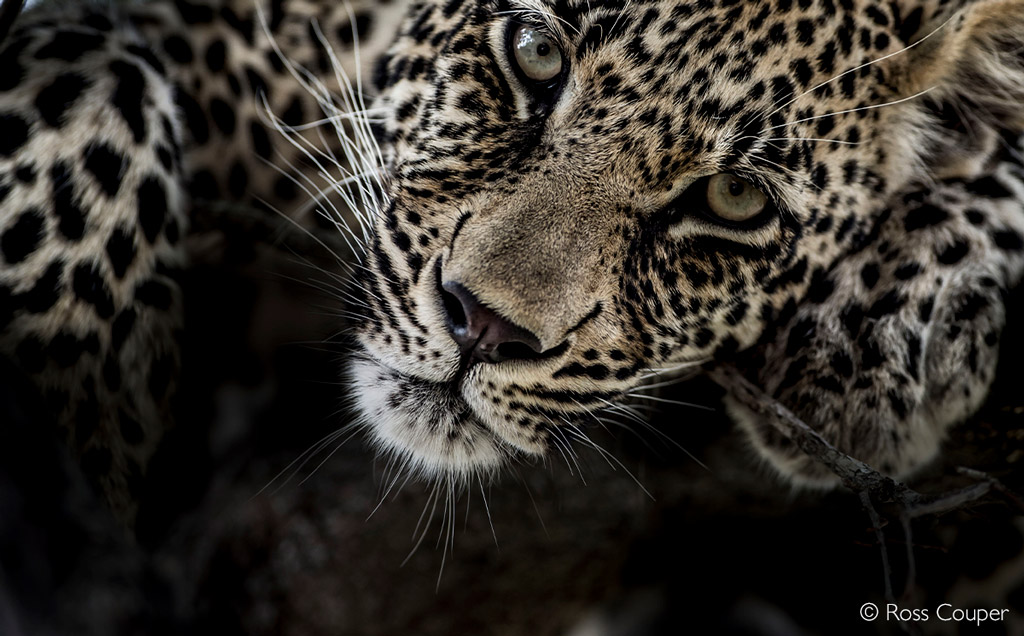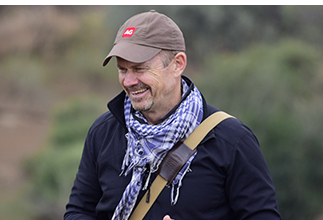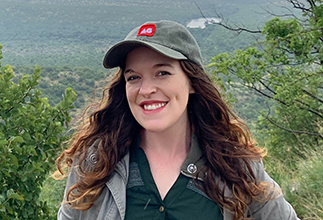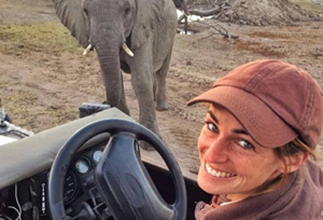
This is a copy of our weekly email newsletter. Subscribe here to receive the newsletter.
Epic pics + big cat safari

I have just arrived at my guesthouse bordering Nyungwe National Park in southwest Rwanda – looking forward to exploring these ancient primal forests as a guest of African Parks.
Amongst other exciting activities we will be visiting the site where African Parks is building a midrange camp deep in the forest, due to be opened in Q1, 2024. This forms part of our Ukuri partnership with AP that kicks off midyear. Our other Nyungwe plans in the coming four days include chimp trekking, seeking out some of Africa’s most sought-after avian candy (did anyone mention Shelley’s crimsonwing?) and braving the thrilling Canopy Walkway for a top-down view of Afromontane rainforest.
Rwanda is so clean, so well-run and her people so welcoming – what an incredible example to all of what can de done after that tumultuous history! If you are ever in Kigali, make sure to include the Genocide Memorial in your plans – take tissues. #Respect
Keep the passion

Simon Espley – CEO, Africa Geographic
From our Editor – Taryn van Jaarsveld

Our scientific editor Jamie recently spent six days searching for the renowned leopards of Sabi Sands, sharing her love of the reserve and its inhabitants with fellow leopard lovers on an AG safari. The safari was a bonanza of epic leopard sightings, filled with laughs and the rejuvenation that can only come from time spent in the bushveld. Jamie shares the magical moments from this safari in our first story below. If this has you longing for time in the bush, why not join Jamie for the next one?
The entries for Photographer of the Year are streaming in, and we’re beyond impressed with the quality of this year’s images. This week’s gallery features Amboseli’s giants, elegant snakes in the moorlands of Mount Kenya and the forests of Pongola, intricate portraits of smaller creatures such as tree agamas and mantises, and some striking landscape shots starring the mighty cats of the Maasai Mara. Enjoy the gallery in our second story below.

Story 1
https://africageographic.com/stories/a-sabi-sands-leopard-safari/
BIG CAT SAFARI
Jamie Paterson spends time with the famous leopards of Sabi Sands Game Reserve, Greater Kruger, on a specialised leopard safari
Story 2
https://africageographic.com/stories/photographer-of-the-year-2023-weekly-selection-week-4/
STUNNING PICS
Photographer of the Year 2023 entries for Week 4 are here! Enter for a chance to win your share of US$10,000 and a Botswana safari
From our Scientific Editor – Jamie Paterson

Concerning reports of declining great white shark numbers off the Western Cape coast have been around for years, but the reasons behind the disappearance of our beleaguered sharks remain contested. There are, however, suspects. In case you haven’t heard, a pair of orcas lurking in our waters appear to be specialist shark hunters. Nicknamed Port and Starboard, the two whales are famous for their killer ways and distinctive modus operandi of consuming the oil-rich livers of their prey.
Did you know that Port and Starboard were recently implicated in the deaths of at least 17 sharks in a single day? The carcasses of the female seven-gill sharks washed ashore on Pearly Beach in Gansbaai, devoid of their livers. This is the pair’s largest killing spree to date.
However, whether or not the orcas are solely to blame for declining shark numbers has yet to be conclusively proven. Of course, it is far easier to blame a natural event than to suggest that the actions of fisheries (through depleted food resources, longline fishing and so on) may also be playing a substantial role…

 WATCH: Save The Elephants recently shared this rare footage of a critically endangered wild forest elephant, fleeing a technologically generated bee sound in Liberia. The video shows the elephant’s reaction as the buzz of bees fills the air. This video captures a conservation victory: the Buzz Box tool, developed by Wildlife Survivors, is proving effective in safely steering elephants away from farms by emitting the sound of agitated bees – preventing incidents of human-wildlife conflict (01:13). Click here to watch
WATCH: Save The Elephants recently shared this rare footage of a critically endangered wild forest elephant, fleeing a technologically generated bee sound in Liberia. The video shows the elephant’s reaction as the buzz of bees fills the air. This video captures a conservation victory: the Buzz Box tool, developed by Wildlife Survivors, is proving effective in safely steering elephants away from farms by emitting the sound of agitated bees – preventing incidents of human-wildlife conflict (01:13). Click here to watch
To comment on this story: Login (or sign up) to our app here - it's a troll-free safe place 🙂.![]()






